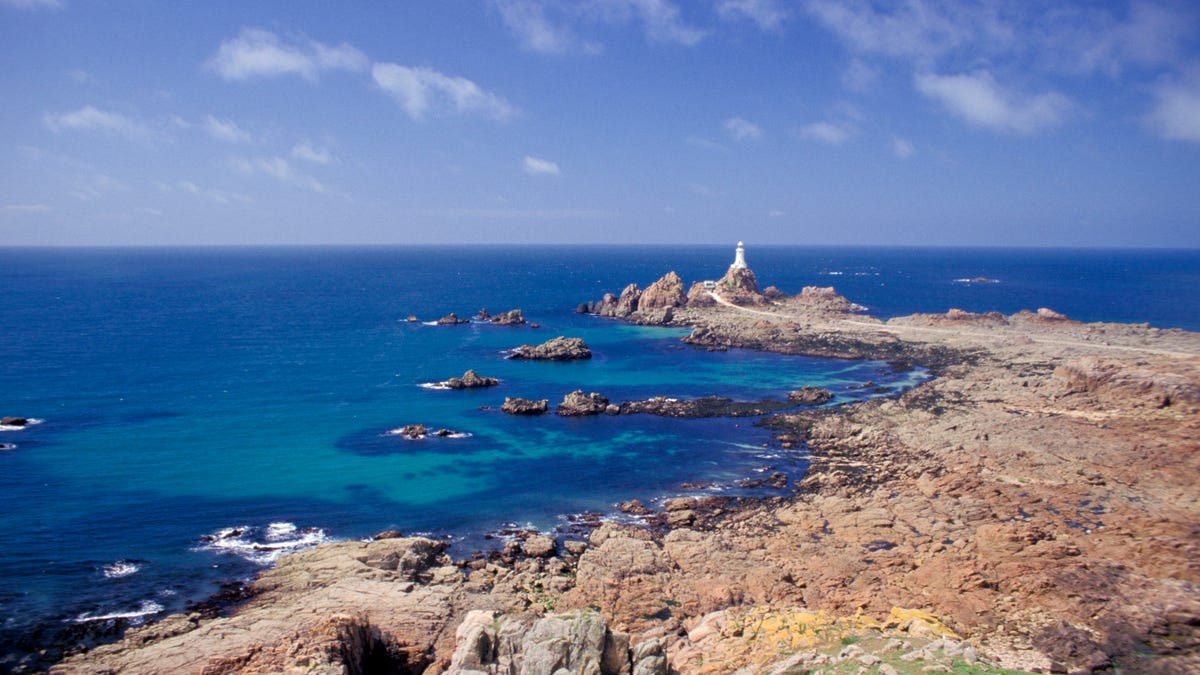Apple reportedly moved cash to island to avoid Irish taxes
The Paradise Papers data leak details Apple's efforts to shelter more than $250 billion in overseas cash.

The tiny island of Jersey in the English Channel has reportedly become a tax haven for companies like Apple.
Apple's tax practices are back in the spotlight.
A new report from the International Consortium of Investigative Journalists and its media partners says Apple sought out a new location to store its overseas cash to avoid paying higher taxes. The findings, part of a leak of documents dubbed the "Paradise Papers," say the company chose the tiny island of Jersey in the English Channel to store its over $250 billion in cash. The island charges no tax on companies' profits, ICIJ reported.
"Jersey was to play a significant role in Apple's newly configured Irish tax structure set up in late 2014," the publication said. "Under this arrangement, the MacBook-maker has continued to enjoy ultra-low tax rates on most of its profits and now holds much of its non-US earnings in a $252 billion mountain of cash offshore."
The Paradise Papers records come from the internal files of offshore law firm Appleby and corporate services provider Estera. German newspaper Süddeutsche Zeitung received the documents and shared them with ICIJ and its media partners, including The New York Times, Australia's ABC, the BBC in the United Kingdom, Le Monde in France and CBC in Canada. The partnership mirrors the treatment of 2015's Panama Papers leak.
CNET is unable to verify whether the documents are real or have been altered.
Apple, in a lengthy statement in its online newsroom, refuted the Paradise Papers report. It said the changes it made to its corporate structure in 2015 were done to "preserve its tax payments to the United States, not to reduce its taxes anywhere else." It said it didn't move operations or investments from Ireland and that its "effective tax rate on foreign earnings" is 21 percent.
"Apple believes every company has a responsibility to pay its taxes, and as the largest taxpayer in the world, Apple pays every dollar it owes in every country around the world," the company said in its nearly 1,200-word online response. "The changes we made did not reduce our tax payments in any country."
Tax scrutiny
Apple is one of many US technology companies that have benefited from stashing cash overseas. That maneuver lets the companies avoid paying hefty taxes they could face by bringing the cash back to the US. In Apple's case, it held its cash in Ireland to pay a much smaller tax rate than the 35 percent level in the US.
But Apple has come under fire both in the US and the European Union for its tax practices. CEO Tim Cook appeared before Congress in early 2013 to defend Apple's strategy of holding most of its cash in Ireland.
Apple CEO Tim Cook in May 2013 testified before Congress about his company's tax practices.
The EU, meanwhile, believed Ireland wasn't collecting enough taxes and instead gave companies like Apple too big of a break on Ireland's already low 12.5 percent tax rate. The selective treatment allowed Apple to pay an effective corporate tax rate of 1 percent on European profits in 2003, according to the commission last year. In 2014, Apple paid a tax rate of 0.005 percent. As a result, the EU slapped Apple with a $14.5 billion tax bill in mid-2016.
According to the documents leaked in the Paradise Papers, Apple started looking for a new place to store its cash in early 2014 as Ireland moved to change its corporate tax law.
"The company appeared to be on the lookout for a country in which nothing at all would get in the way of business," said Süddeutsche Zeitung. "A place with no state interference, no politics and no public scrutiny."
The paper reported Apple, with the help of law firm Appleby, chose Jersey for its 0 percent corporate tax rate. Appleby listed two Apple subsidiaries as based in Jersey, starting in 2015.
As of the end of September, Apple had $268.9 billion in cash, with the vast majority of that held overseas. Last week, Cook, in a TV interview, again called for a tax reform that would let him bring the cash back to the US without facing a huge tax bill.
Update at 2:30 p.m. PT with Apple's comment.
The Smartest Stuff: Innovators are thinking up new ways to make you, and the things around you, smarter.
iHate: CNET looks at how intolerance is taking over the internet.

